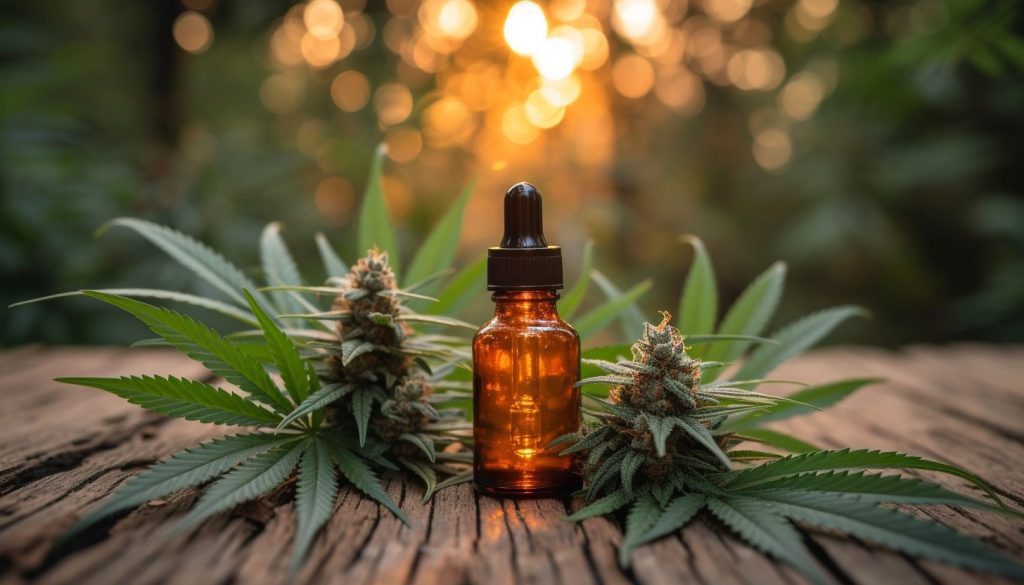Cannabidiol, better known as CBD, has sparked a number of controversies in recent years. While some attribute various benefits to it such as reducing anxiety or pain, others are vigorously opposed to its consumption. To better understand this opposition to CBD, it is necessary to look at the main arguments put forward by its detractors.
Sommaire
ToggleInsufficient regulation of the CBD market
One of the reasons that pushes some people to be against CBD is the lack of regulation of the market. Indeed, despite growing popularity and more lenient laws regarding the sale and consumption of CBD-based products, there is still a legal uncertainty surrounding this emerging market.
A stranglehold on the market by unscrupulous players
Due to this lack of clear and strict regulation, some unscrupulous players can take advantage of the situation by selling products of poor quality, or even dangerous to health. The industrial production and rapid marketing of these cannabidiol-based products thus represent a source of concern for consumers concerned about their health and well-being.
The lack of in-depth research on the effects of CBD
Despite the many testimonials from users praising the benefits of CBD, it is important to note that the scientific research carried out on this cannabis extract remains insufficient to draw formal conclusions. Critics of CBD therefore rely on this lack of solid scientific evidence to question its use.
Highlighting undesirable side effects
While some studies have already highlighted some undesirable side effects linked to the consumption of CBD such as drowsiness, fatigue, diarrhea or even drug interactions, this research is currently limited and insufficient to be fully taken into account by regulatory authorities.
The risk of cannabis consumption becoming commonplace
Another argument put forward by opponents of CBD concerns the risk of trivialization of cannabis consumption that it could cause. Indeed, CBD being an extract of hemp, a plant also used to produce THC (tetrahydrocannabinol), a substance responsible for the psychotropic effects of cannabis, some fear that its legalization and democratization will contribute to an increase in the consumption of cannabis for purposes recreational.
The confusion between CBD and THC
A general ignorance of the subject can thus lead certain people to wrongly associate products containing CBD with those containing THC, which reinforces this fear of a trivialization of cannabis consumption. However, the effects of CBD are very different from those of THC and do not cause euphoria or impaired cognitive abilities.
The different forms of CBD consumption
Additionally, one of the arguments people make against CBD is the different forms in which it can be consumed, with some being more controversial than others. Among these forms, we find in particular theCBD oil and thee-liquid for electronic cigarette.
CBD oil: a dosage that is difficult to control
The use of CBD oil can be problematic due to the difficulty of correctly dosing its consumption. Although bottles are generally equipped with graduated pipettes to measure doses, it remains difficult to know precisely the quantity of CBD ingested, thus increasing the risk of unwanted side effects.
CBD e-liquid: a controversial mode of consumption
The consumption of CBD in the form of e-liquid for electronic cigarettes is also a source of controversy, particularly due to fears linked to potential risks of vaping on health. In addition, some are concerned about seeing young non-smokers starting to use electronic cigarettes solely to consume CBD, which could constitute a gateway to the use of traditional cigarettes and cannabis.
- Insufficient regulation of the CBD market
- Lack of in-depth research on the effects of CBD
- Risk of cannabis consumption becoming commonplace
- Different forms of CBD consumption (CBD oil, e-liquid, etc.)
In short, although CBD is considered to have interesting therapeutic potential, it is essential to consider the arguments of people opposed to its consumption, in order to promote an informed debate around this still little-known substance.



